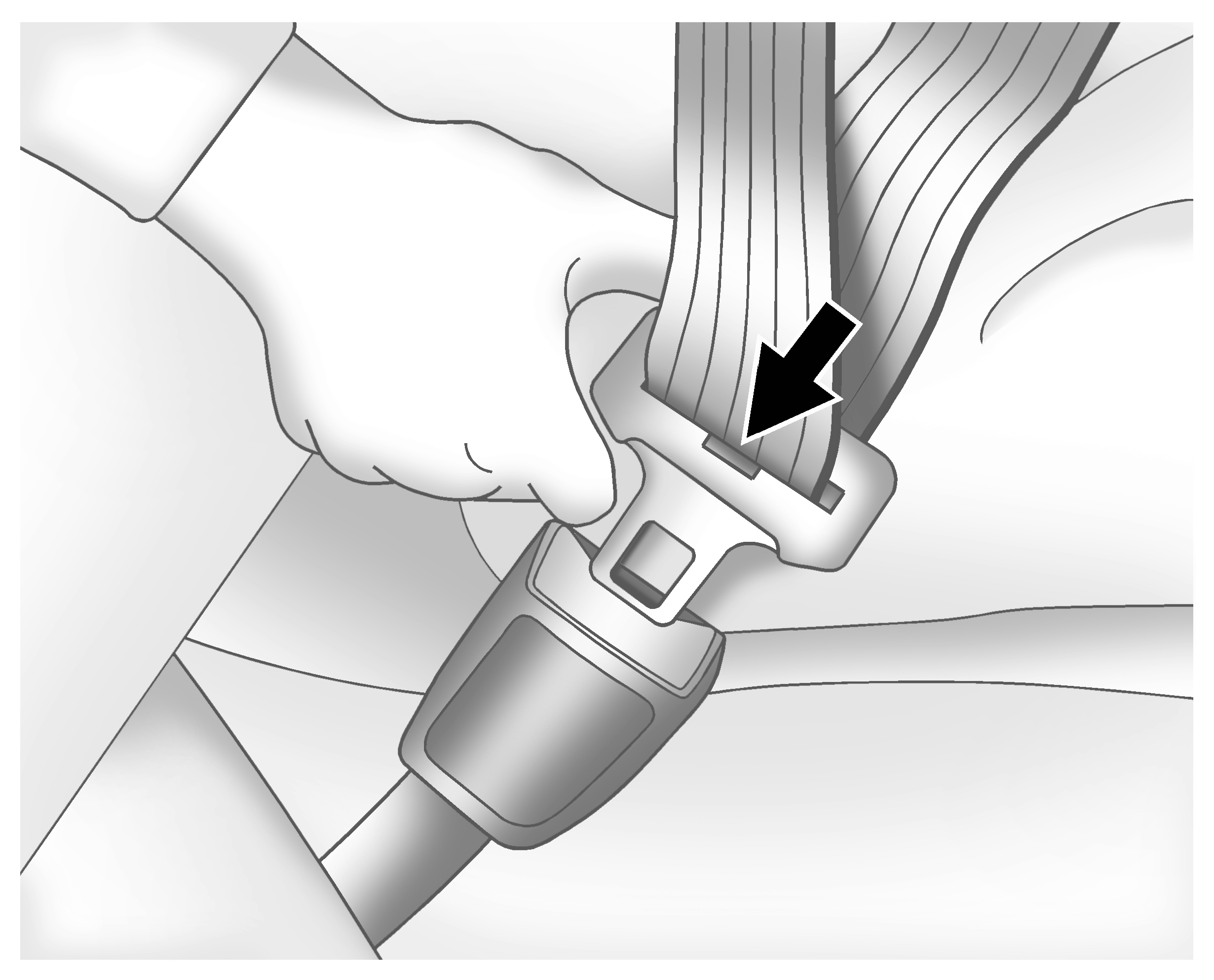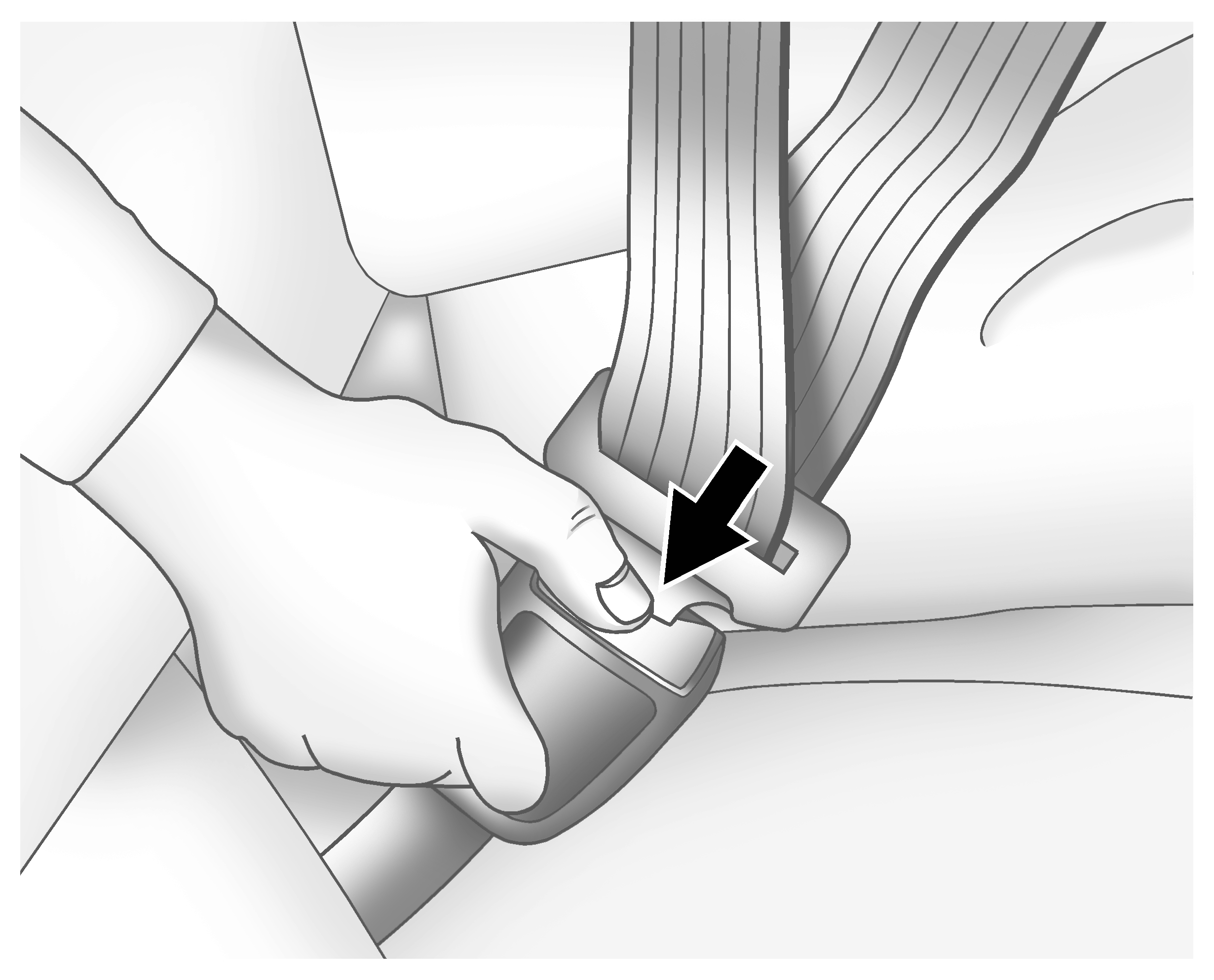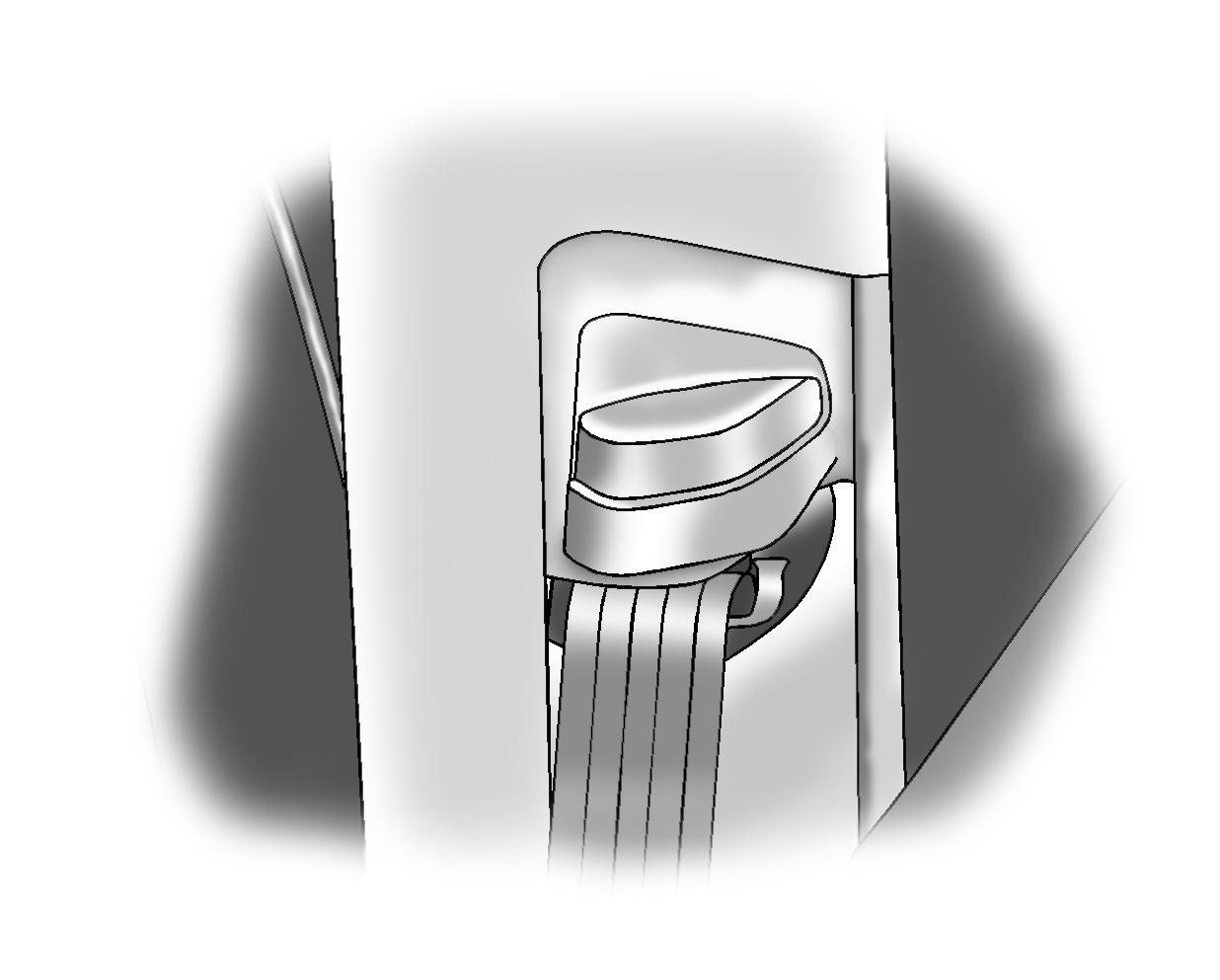All seating positions in the vehicle have a lap-shoulder belt.
The following instructions explain how to wear a lap-shoulder belt properly.
- Adjust the seat so you can sit up straight. To see how, see "Seats" in the Index.
- Pick up the latch plate and pull the belt across you. Do not let it get twisted.
- Push the latch plate into the buckle until it clicks.
- If equipped with a shoulder belt height adjuster, move it to the height that is right for you. See "Shoulder Belt Height Adjustment" later in this section for instructions on use and important safety information.
- To make the lap part tight, pull up on the shoulder belt.

The lap-shoulder belt may lock if you pull the belt across you very quickly. If this happens, let the belt go back slightly to unlock it. Then pull the belt across you more slowly.
If the shoulder portion of a passenger belt is pulled out all the way, the child restraint locking feature may be engaged. If this happens, let the belt go back all the way and start again.

If the latch plate will not go fully into the buckle, check if the correct buckle is being used.
Pull up on the latch plate to make sure it is secure. If the belt is not long enough, see Safety Belt Extender .
Position the release button on the buckle so that the safety belt could be quickly unbuckled if necessary.
It may be necessary to pull stitching on the safety belt through the latch plate to fully tighten the lap belt on smaller occupants.

To unlatch the belt, push the button on the buckle. The belt should return to its stowed position.
Before a door is closed, be sure the safety belt is out of the way. If a door is slammed against a safety belt, damage can occur to both the safety belt and the vehicle.
Shoulder Belt Height Adjuster
The vehicle has a shoulder belt height adjuster for the driver and right front passenger seating positions.
Adjust the height so that the shoulder portion of the belt is centered on the shoulder. The belt should be away from the face and neck, but not falling off of the shoulder. Improper shoulder belt height adjustment could reduce the effectiveness of the safety belt in a crash.

Push down on the release button and move the height adjuster to the desired position. The adjuster can be moved up by pushing on the front of the height adjuster.
After the adjuster is set to the desired position, try to move it down without pushing the button to make sure it has locked into position.
Safety Belt Pretensioners
This vehicle has safety belt pretensioners for the front outboard occupants. Although the safety belt pretensioners cannot be seen, they are part of the safety belt assembly. They can help tighten the safety belts during the early stages of a moderate to severe frontal and near frontal crash if the threshold conditions for pretensioner activation are met. And, if the vehicle has side impact airbags, safety belt pretensioners can help tighten the safety belts in a side crash.
If the passenger sensing system detects that there is not a passenger in the right front passenger position, the safety belt pretensioner for that position will not activate. See Passenger Sensing System .
Pretensioners work only once. If the pretensioners activate in a crash, they will need to be replaced, and probably other new parts for your safety belt system. See Replacing Safety Belt System Parts After a Crash .
